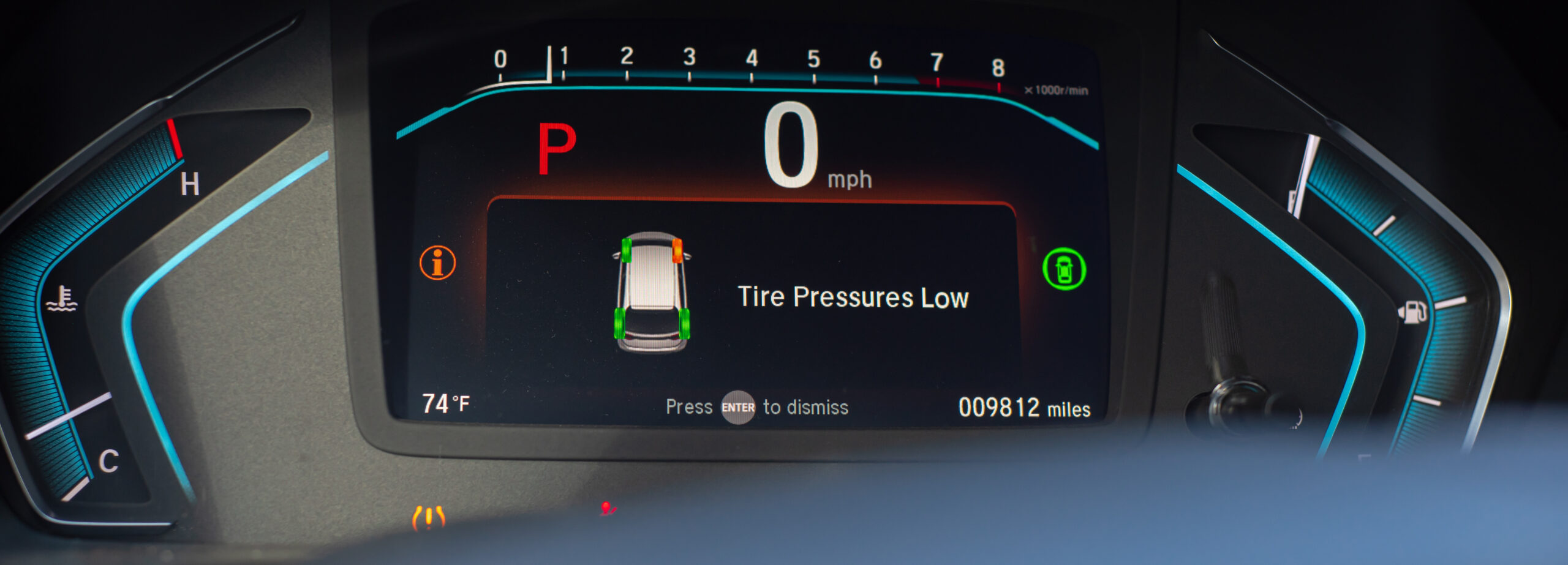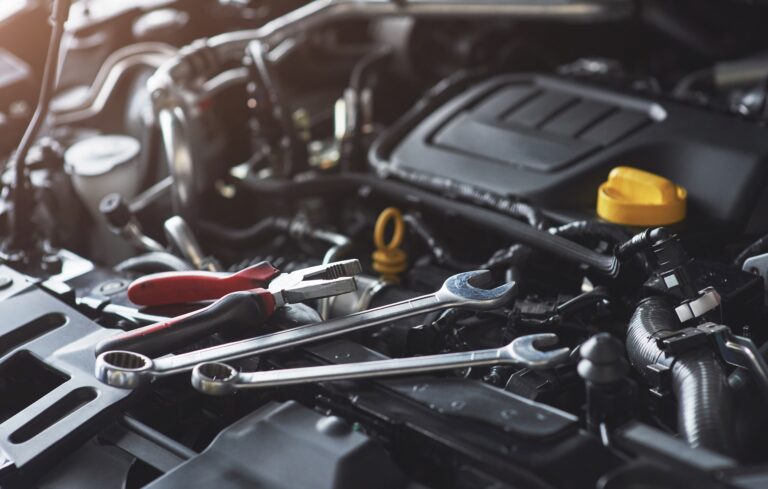Are Smart Tires & TPMS Worth It?

Tires play a bigger role in safety and performance than many drivers realize. If your tires are underinflated, worn unevenly, or overheating, your chances of a blowout or accident rise significantly. That’s where technology like smart tires and tire pressure monitoring systems (TPMS) comes in.
Today, every car built after 2008 comes equipped with a TPMS by law, but smart tire technology takes things further. These innovations give you real-time information about tire health, fuel efficiency, and even predictive maintenance needs.
Smart tire technology is shaping the future of mobility by enabling advanced solutions for electric, autonomous, and connected vehicles, driving innovation in transportation.
In this guide, we’ll break down how smart tires and TPMS work, their benefits, their limitations, and whether they’re worth the investment for your daily commute, family car, or commercial fleet. If you want expert advice or service, take it to Telle.
What Are Smart Tires & TPMS?
Smart tires and TPMS often get grouped together, but they’re not the same. Both are designed to help drivers maintain safer vehicles, but the level of information and capability differs. Smart tire systems can respond to changing road and vehicle conditions, adapting their functionalities to enhance safety and performance.
Smart Tires Defined
Smart tires are equipped with built-in sensors that do more than measure air pressure. They track:
- Tire pressure
- The temperature inside the tire
- Tread depth and wear patterns
- Road conditions, such as friction and surface temperature
- Grip and traction levels
These sensors transmit data directly to your car’s onboard computer or to a connected mobile app, letting you see the “health” of your tires in real time. According to research published by the National Institutes of Health, smart tires could significantly reduce accidents by alerting drivers to hidden risks before they become critical.
What is TPMS (Tire Pressure Monitoring System)?
A tire pressure monitoring system is designed for one thing: keeping tabs on tire inflation. By law, every new car sold in the U.S. since 2008 must include TPMS. The system alerts you with a dashboard light when tire pressure falls below a safe threshold.
There are two main types of TPMS:
- Direct TPMS: Uses individual pressure sensors in each tire for accurate readings.
- Indirect TPMS: Estimates pressure changes by measuring wheel rotation speeds via the anti-lock braking system (ABS).
Both provide a safety net for drivers, but direct systems are more precise.
How Smart Tires Differ From Traditional TPMS
The main difference is scope. TPMS monitors tire pressure only, while smart tires provide a wider range of insights. For example, smart tire systems can notify you when tread is wearing unevenly, predict when a tire will need to be replaced, or even detect hazards like overheating before they cause failure. With smart tire technology from brands like Continental, drivers gain a deeper understanding of tire performance and safety.
Smart tires represent the next generation of tire technology, designed for advanced vehicle systems, including electric and autonomous vehicles, and incorporating innovations such as smart sensors and autonomous monitoring.
Benefits of Smart Tires & TPMS
Improved Safety
Underinflated tires are a leading cause of blowouts, especially during hot weather or long trips. With TPMS, you’ll get a warning before your tires become dangerously low. Smart tires go further by spotting issues like worn tread or excessive heat, giving drivers more time to act. According to industry insights, this proactive approach can help prevent accidents and reduce risk for both drivers and passengers.
These safety benefits are especially important for electric vehicles, where optimal tire performance and safety are critical due to the unique demands of electric powertrains and increased vehicle weight.
Cost Savings Through Maintenance
Driving on properly inflated tires saves money at the pump. One study shared by the U.S. Department of Energy found that driving on four tires at 75% of the recommended pressure dropped fuel efficiency by 2-3%. When driving on tires deflated to around 50% their recommended pressure, fuel efficiency was decreased by 5-10%.
Smart tire alerts and TPMS reminders help you maintain the right pressure, which translates into better fuel efficiency. These systems can also detect small leaks before they become expensive repairs. Ongoing development in smart tire technology continues to improve cost efficiency and maintenance benefits.
Extended Tire Life
Even tire pressure means even tread wear. By keeping your tires properly inflated, both TPMS and smart tire systems extend the lifespan of your tires. For drivers who invest in premium brands, smart monitoring helps maximize performance and value. Smart tire systems can also alert drivers when their tires are nearing the end of their usable life, helping to prevent premature disposal and reduce environmental impact.
Peace of Mind for Drivers
Perhaps one of the biggest advantages is confidence. Instead of guessing whether your tires are safe, you’ll know. For families with young drivers, road trippers planning long journeys, or anyone who simply wants one less thing to worry about, smart tires and TPMS provide peace of mind.
Limitations & Considerations
Like any technology, smart tires and TPMS have trade-offs to weigh. One key benefit is that smart tire technology can help reduce the risk of flat tires by providing early warnings and maintenance alerts.
Higher Upfront Costs
Smart tires are more expensive than traditional ones, and TPMS sensors can add to service costs when they need replacement or recalibration. However, the long-term savings in fuel, maintenance, and tire longevity can offset the investment.
Maintenance & Compatibility Issues
Not all vehicles are compatible with smart tire systems, and some may require specialized service or updates. Standard TPMS sensors can also fail or lose battery power over time, which means replacements may be needed during the life of the vehicle.
Data Overload or Misreadings
More data isn’t always better. Some drivers may feel overwhelmed by constant alerts, while others may become too reliant on technology and stop performing basic tire checks. Occasional false warnings can also occur, though these are relatively rare.
It’s important to review the details of each alert to ensure proper interpretation and response.
Real-World Impact: Are They Worth It?
Daily Driving & Commuting
For everyday drivers, a built-in TPMS is enough to cover essential safety. Compared to standard bike tires, which rely on traditional air-filled designs and basic rubber compounds, smart tires offer advanced technology and benefits like real-time monitoring and improved durability—features especially valuable for daily commuters. Smart tires are helpful if you rack up high mileage or want more advanced tracking, but they’re not essential for everyone.
Fleet & Commercial Use
For commercial fleets, predictive maintenance and fuel savings make smart tires an easy decision. The launch of the first commercial product in the smart tire category, such as innovative airless bicycle tires, is already impacting fleet operations by offering new levels of durability and reduced maintenance. The ability to monitor dozens, or even hundreds, of vehicles in real time can significantly cut downtime, improve safety, and save thousands in operating costs.
Peace of Mind for Families or Long-Distance Drivers
Families and road-trippers benefit from the extra layer of safety smart tires provide. Knowing that your tires are being constantly monitored reduces the chance of being stranded on the side of the road due to an unexpected tire failure.
Common Questions About Smart Tires & TPMS
Do I need smart tires if I already have TPMS?
Not necessarily. TPMS is legally required and provides basic tire safety monitoring. Smart tires incorporate advanced features such as tread wear and temperature tracking, which enhance the capabilities of traditional TPMS by providing more comprehensive data and adaptive monitoring. This is particularly valuable for high-mileage drivers, families, or fleets.
What smart tire brands does Telle offer?
At Telle Tire, we have selected leading brands in smart tire innovation, including Continental Tires, a leader in the field.
How long do TPMS sensors last?
Most TPMS sensors last between 5 and 10 years. The exact lifespan depends on driving habits and sensor quality. When batteries fail or sensors wear out, our technicians can replace them quickly.
What happens if my TPMS light turns on?
If your TPMS warning light activates, one or more tires may be underinflated. Check your pressure as soon as possible, add air if needed, and if the light doesn’t turn off, schedule a service appointment. Ignoring the warning can lead to unsafe driving conditions and increased tire wear.
Ready to Drive Smarter? Take it to Telle for Expert Tire Advice
Whether you’re considering upgrading to smart tires or need reliable TPMS service, the experts at Telle Tire are here to help. We’ll make sure your tires are safe, efficient, and performing at their best.
Take it to Telle near you in St. Louis, Kansas City, Springfield, MO, or Jefferson City, MO, today and discover why more drivers across the Midwest trust us for smarter, safer driving.

Take it to telle
Stay Safe with a Tire Check from Telle Tire
Worried about your tread depth or tire condition heading into the summer storm season? Take it to Telle. Our expert technicians can assess your tires, check pressure levels, and recommend replacements when necessary, helping you stay in control regardless of the weather conditions. Stay safe, stay prepared, and if you’re unsure about your tires, schedule a visit with your nearest Telle Tire & Auto Centers location today.
Stay Informed
Recent Articles from Telle Tire

What Happens to Your Car When You Delay Scheduled Maintenance
It’s easy to push routine car maintenance down the to-do list. Oil changes, wheel alignments, tire rotations, fluid checks, battery tests, and suspension inspections often feel…

Winter Driving in Missouri: Top 7 Mistakes Drivers Make & How to Avoid Them
Winter in Missouri is anything but predictable. Drivers can experience early-season frost, freezing fog, sudden snow bursts, black ice on bridges, and wide temperature swings, sometimes…

Top Scenic Drives in Missouri This Winter
Winter transforms Missouri into a stunning landscape of snow-covered forests, frosted bluffs, quiet river valleys, and peaceful state parks. Whether you’re near St. Louis or Kansas…
